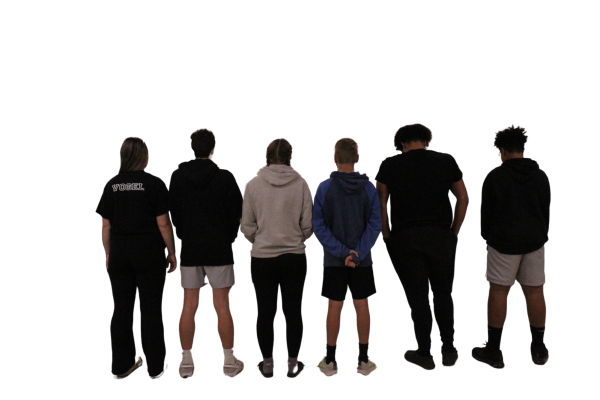Behavior expresses unspoken words

James is normally a good student who always gets high grades—for the past month he has turned in assignments late in multiple classes. Consequently, his grades have begun to drop.
Mary has been falling asleep in her first block almost every day. After two weeks of this behavior, her teacher got frustrated and gave her a detention.
Sam keeps missing important instructions and notes in class because he wasn’t paying attention. He has become very quiet and hasn’t been asking for help despite not knowing what is going on.
Is James just being lazy and not doing his work? Does Mary not care about her teacher or classroom because she would rather sleep? Is Sam just a bad student who doesn’t speak up? Maybe none of those assumptions are true—maybe there is something else going on that nobody realizes. Maybe James is involved in multiple activities and is struggling with time management, maybe Mary’s mom is sick and she has had to pick up extra work, maybe Sam just ended a long relationship and is struggling.
Student behavior expresses far more than just the actions being made by an individual. It is a window of communication for suppressed or overwhelming emotions. Behavior ranging from frequent tardies or missed assignments, all the way to multiple suspensions, often has deeper meanings.
The message may be mixed, but teen behavior is actually communication.
While some behaviors may be the result of more difficult issues, others like poor grades, missing assignments, sleeping in class, tardies or talking back may be easier to tackle first for adults in charge.
Incorrect interpretations of these behaviors can solidify the thoughts of the student, often the student already feels like nobody may care or listen. When this behavior is frequently treated with disciplinary actions it begins to limit the student, implying that they are simply bad students.
With 13.1% of our students having received some form of disciplinary action since August 2020, there is room for some improvement. Consider the fact that there have been 156 after school detentions this year for just 78 junior and senior high students.
Temporary issues at home and long term personal issues can both contribute to behavioral issues at school.
Except, it is more than just home life that can contribute, pressure can be a factor as well. In a study done by Pew Research Center they found that “16% of teens said they felt “a lot” or “some” pressure to drink alcohol.” Although the number of teens participating in drinking, gangs or other activities are starting to drop.
School often becomes the place where issues are seen, whether it is pressure or a need for attention. These students should not simply be written off as bad kids. Instead, ask them why they are struggling.

We suggest: Questions, not discipline.
Talking to teens about their behaviors—especially if out of the ordinary—can be the first step in building the foundation for a positive outlet to release emotions. Acts as simple as a student paying less attention in class can be an indication of something else going on outside of the class.
It is easy to only consider the big events that may have a strong effect on a child’s behavior, but it often can be associated with seemingly minor causes like wanting to fit in.
Another huge reason that students may act out is mental health. The Association for Children’s Mental Health estimates that 80% of people between ages 6 and 17 with mental illness aren’t getting the help that they need. Dyslexia, ADHD and anxiety all can go unnoticed, but can greatly affect the behavior of teens.
Not receiving adequate help can cause issues with everyday tasks and school work. Confusion and frustration often can cause students to act out.
Although teachers’ main roles are to teach, oftentimes, they can become a big part of a student’s life. Simply reaching out to the student to gain more information can help show a way to resolve these issues. This allows the teacher to better provide resources for students to get help and back on track.
Behavior is the best way to understand what someone may be feeling, oftentimes behavior isn’t even purposeful actions done by students. Students who are dealing with these issues should be talked to calmly about what they are going through. Behavior management is achievable, even in a school setting. By building a positive relationship with students the ability to help them increases as the trust builds.
Behavior doesn’t change if it is always met with negative actions, change can not be expected if nothing changes.





